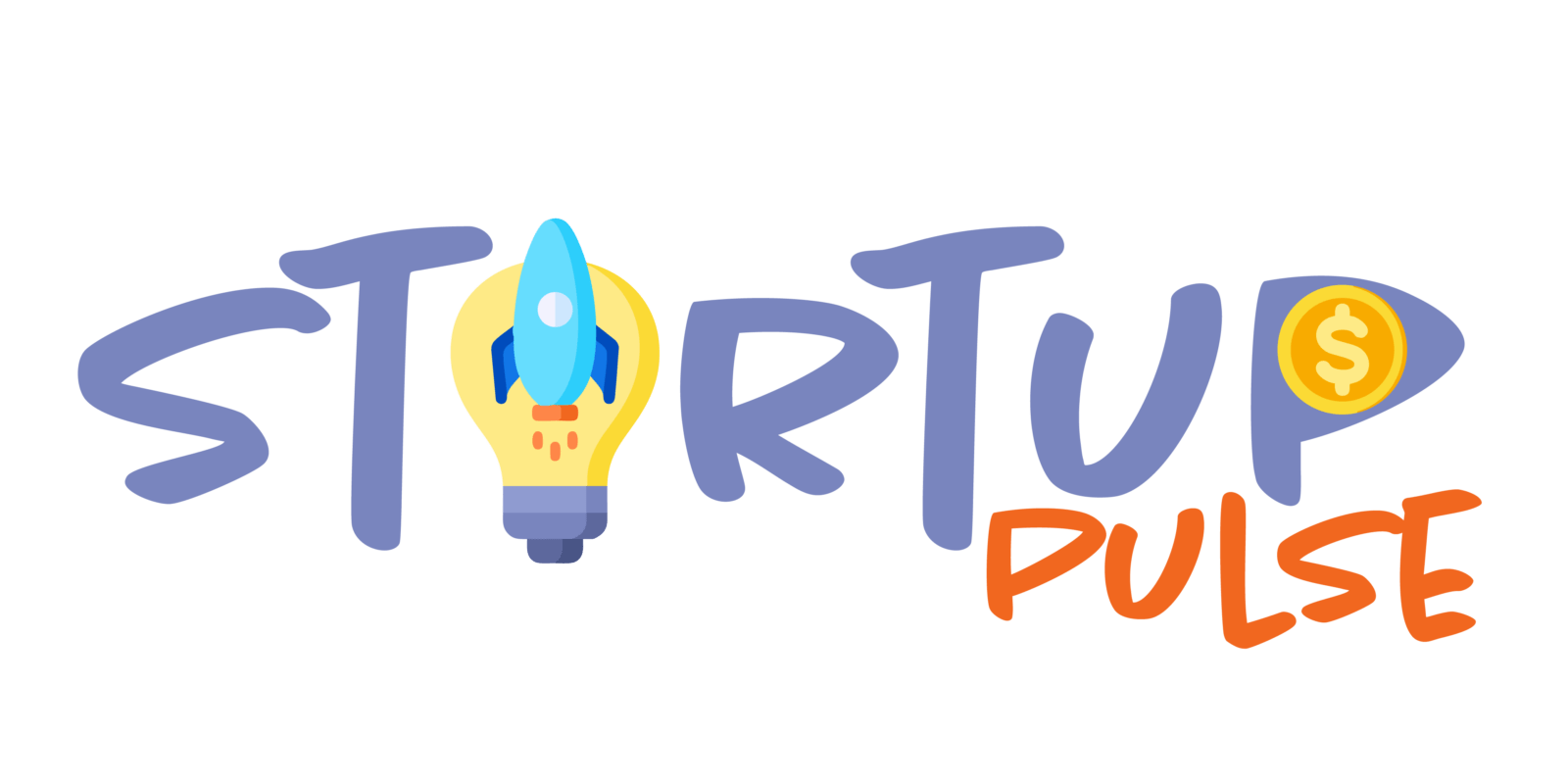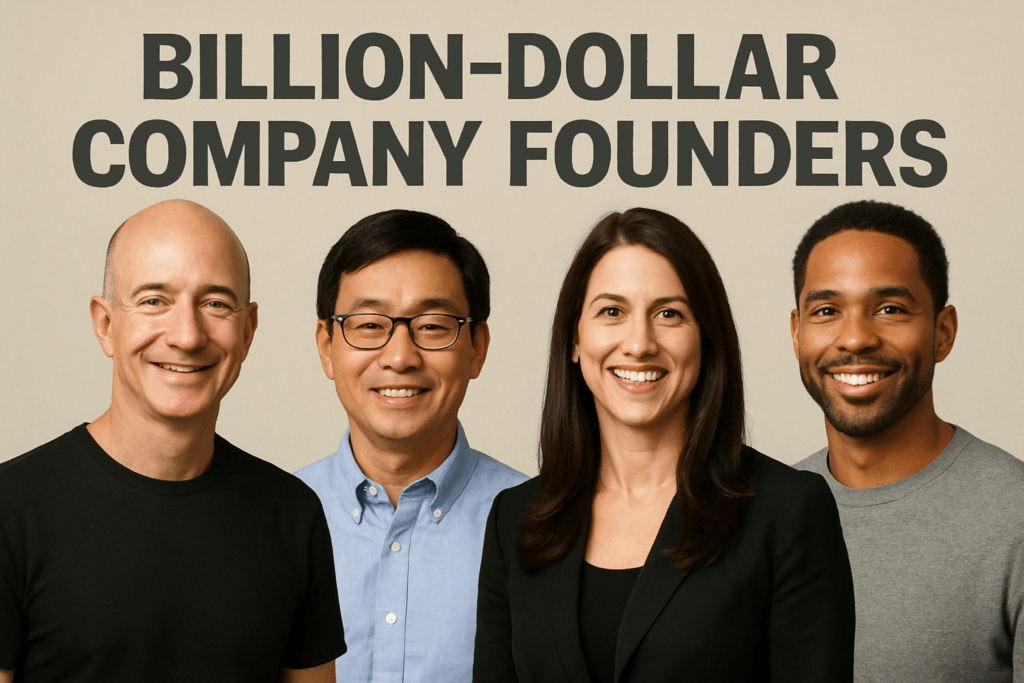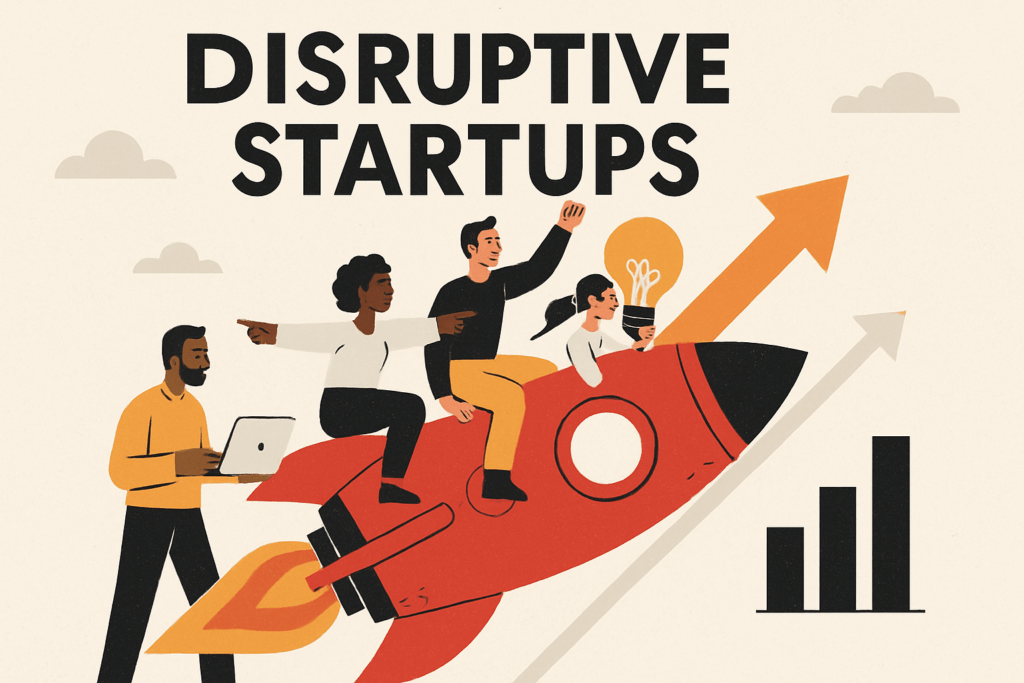Founders Who Built Billion-Dollar Companies from Scratch: What Sets Them Apart
- Quick intro: redefining the odds—spotlighting billion-dollar company founders who truly started from zero.
- Tease a mix of grit, vision, and unexpected lessons.
Founders Who Built Billion-Dollar Companies from Scratch: What Sets Them Apart
Building a billion-dollar company doesn’t just bend the odds—it shatters them. We’re not talking about founders with fat trust funds, Ivy League connections, or billionaire mentors on speed dial. This is about a rare breed: the ones who started with nothing but hustle, scraped knees, a half-baked dream, maybe a ramen diet. These founders didn’t launch with an angel investor waiting in the wings—they built by bootstrapping, reinvesting, and learning on the go.
What’s the common thread? It’s not just genius or work ethic. It’s grit—the ability to keep swinging through the nos, pivots, broke months, and quiet rooms thick with self-doubt. Vision, yes, but also an appetite for risk most people would call unreasonable. And then there are those weird, priceless lessons: like learning to enjoy rejection, or how to turn every tiny win into momentum. There’s no secret sauce, but there are patterns—and a few surprises—that separate the relentless starters from the rest.
The Blueprint: Building a Fortune Brick by Brick
Starting “from scratch” means just that—no family money, no secret trust fund, no built-in safety net if things went sideways. It’s the founder with the maxed-out credit card, the side hustle after the day job, and the apartment that’s part home, part warehouse, part war room. It’s ground zero, where the big vision starts with Google Docs, not Khakis and connections.
What stands out? Relentless learning—these founders are the type who binge on knowledge the way most people binge on Netflix. They soak up skills, read everything, pivot fast, and see failure as necessary research. Frugality isn’t a virtue; it’s survival. Every dollar is stretched, and cheap hacks become habits, not temporary solutions. Calculated risks are the only risks taken—these builders don’t bet the farm blindly, but they also don’t let the fear of losing a crop keep them from sowing seeds.
Forget the myth that billion-dollar businesses demand billions to begin with. For these founders, “from scratch” is less about deprivation and more about resourcefulness—a blueprint built on hustle, learning, and smart bets. The fortune is pieced together, brick by brick, by someone confident enough to play the long game—and humble enough to sweep the floors before opening for business.
Stories That Actually Started From Scratch
Let’s cut through the noise: some billion-dollar founders actually began with nothing. And yeah, we mean nothing—think sleeping on friends’ couches, eating ramen on repeat, and grinding away in makeshift “offices” (read: dorm rooms, garages, kitchen tables). Here’s a quick, real-world roll call:
Jan Koum (WhatsApp): Koum grew up in a tiny Ukrainian village. When his family immigrated to the U.S., money was so tight they relied on food stamps. He taught himself to code using secondhand books. Years later, he built WhatsApp, which Facebook bought for $19 billion.
Sara Blakely (Spanx): Before launching Spanx, Blakely was a door-to-door fax machine salesperson with $5,000 in savings and zero fashion experience. Her “Aha!” moment came at her apartment ironing board, snipping the feet off pantyhose. She owned every step—cold-calling manufacturers, writing her own patent because she couldn’t afford a lawyer.
Brian Chesky and Joe Gebbia (Airbnb): They couldn’t make rent, so they rented out air mattresses in their apartment. No Silicon Valley money, no cushy connections. Just a desperate Craigslist ad and the willingness to host total strangers. Fast-forward: Airbnb is now worth billions.
Do Won Chang (Forever 21): Arrived in America with his wife, a few English words, and a dream. He juggled three low-paying jobs for years before opening a 900-square-foot clothing store in Los Angeles. That tiny shop transformed into a global fast-fashion empire.
None of these folks had a secret fund, famous last name, or private network. They had rough ideas, big ambition, and the grind-it-out attitude that doesn’t crumble when life gets weird. Zero to a billion takes guts—plus a willingness to look a little foolish at first and keep moving anyway.
Managing the Emotional Impact
Winning a massive amount of money can be emotionally overwhelming. Winners often experience a range of feelings, from joy and relief to anxiety and guilt. Adjusting to this new financial status can bring about significant emotional challenges:
- Survivor’s Guilt – Some winners feel guilt for their sudden wealth, especially if friends and family members continue to struggle financially.
- Relationship Strain – Money can alter dynamics with loved ones, leading to tension, envy, or estrangement if not handled sensitively.
- Identity Shift – Coping with how the win changes one’s sense of self and the perception of others can be difficult.
Planning for the Long Term
Long-term planning is crucial for turning a lottery win into sustained security and happiness:
- Estate Planning – Ensuring that wealth is preserved for future generations involves creating trusts, wills, and other legal documents.
- Philanthropy Planning – Many winners develop detailed plans for charitable giving to maximize the impact of their donations over time.
- Continuation of Financial Education – Continuous learning about financial management and investment opportunities is essential to maintain and grow wealth over time.
Conclusion
The impact of winning a major lottery prize extends far beyond the immediate thrill. The winners’ approach to managing their finances, lifestyle changes, and emotional well-being determines not just their personal future, but also the mark they leave on the world. Every winner’s journey is unique, and careful planning coupled with mindful living can transform a life-changing event into a lasting legacy.
What Happens After Winning Millions?
Winning a life-changing lottery jackpot is every player’s dream. However, the aftermath of such a windfall is not always as glamorous as it seems. The sudden influx of wealth can bring excitement, but also a wave of challenges. Here is what winners often experience:
Navigating the Financial Minefield
Overwhelming Decisions:
- Managing Taxes: A large portion of winnings often goes to taxes. Mishandling this aspect can lead to financial and legal issues.
- Making Investments: Choosing between immediate spending and strategic investments requires careful planning.
Advisors vs. Independence:
- Financial Advisors: Many winners choose to hire professionals to manage their wealth.
- Reckless Spending: Some spend recklessly, draining their fortune faster than expected.
Lifestyle Changes
Newfound Luxuries:
- Luxury Homes and Cars: High-ticket purchases become a reality but come with maintenance costs and other financial commitments.
- Exotic Vacations: Dream trips are now within reach, often leading to lavish lifestyles.
Social Dynamics:
- Friends and Family: Distant relatives and old acquaintances often emerge, causing tension and expectation of sharing the winnings.
- Public Attention: Media and public scrutiny are common, prompting some winners to opt for a low-profile life.
Impact and Legacy
Philanthropy and Social Contribution:
- Charitable Donations: Some winners choose to give back by funding nonprofits or scholarships.
- Community Projects: Contributions to community betterment become a priority for those wanting a lasting impact.
Business Ventures:
- Investments: Investments in businesses and startups can lead to job creation and economic improvement in communities.
Legacy Building:
- The choices made by winners not only shape their own future but influence the legacy they leave behind. Stories of revitalized towns and funded educational programs stand alongside tales of financial ruin due to poor management.
In conclusion, winning the lottery can drastically alter a person’s life, but careful planning and prudent decision-making are essential to avoid turning a dream into a nightmare.
More Real Startups, Real Stories
Want more proof that billion-dollar empires can rise from next to nothing? Look beyond the headlines—real founders with real scrappy starts are everywhere. Take Jan Koum, co-founder of WhatsApp, who grew up on food stamps and later built a messaging platform bought by Facebook for $19 billion. Or Brian Chesky and Joe Gebbia, who launched Airbnb out of desperation, renting air mattresses in their apartment just to pay rent.
It’s not all Silicon Valley glitz either. Melanie Perkins built Canva from Perth, Australia, pitching investors for years before anyone said yes. Samuel “Sam” Walton started selling basics in rural Arkansas before growing Walmart into a global powerhouse. The point? Humble beginnings aren’t a handicap; for many, they’re rocket fuel.
Inspiration is easy to find, whether it’s a founder shipping products from their garage or coding late nights in a college dorm. Want to get granular? Check out this startup success roundup for more stories of gritty, against-the-odds wins. It’s friendly proof that even boardrooms with billion-dollar views often started out with zero view and less than zero certainty.
Behind Every Billion: What Makes These Founders Different?
So after all the hype, what actually separates self-made billion-dollar founders from the pack? For starters: ruthless prioritization. These folks have a radar for cutting noise. They ditch distractions, say no to shiny objects, and focus all firepower on what really moves the needle. Not glamorous, but it works.
Next up is consistency. Yeah, the overnight success narrative is catchy, but these founders show up, day after day, even when it’s boring, embarrassing, or brutal. That relentless stamina? Non-negotiable. While others burn out or flake, they grind through setbacks and keep stacking small wins. Simple, not easy.
And here’s the kicker—setbacks don’t faze them. Not in some “Instagram inspiration” way, either. They treat screw-ups as information, not identity. For these builders, failing isn’t personal—it’s just part of the feedback loop. Find the lesson, adjust the plan, move forward.
Can you mimic some of these moves, even if you never plan to pitch a VC? Absolutely. Start by being deadly clear on your priorities. Practice choosing long-term gains over instant gratification. When you hit roadblocks, make a habit of asking “What’s the lesson?”—then get back at it the next day. No trust fund required. Just the basics, repeated with grit.
Want more inspiration? Dig into Business Insider’s coverage for a hit list of global founders who wrote their own playbook from nothing. Turns out, the blueprints aren’t all that secret—just stubborn, and uncomfortably simple.
Conclusion
Every outsized success we idolize has humble origins—there’s no alternate route around patience and persistence. The names we know today were just hustlers in basements or ramen-fueled dreamers gaming out their next move. If there’s magic, it’s nothing more than showing up, again and again, working angles others miss, learning (sometimes painfully) as you go.
Don’t wait for the perfect roadmap or a golden ticket—it’s about using what you’ve got, where you are. Stack small wins. Lean into setbacks. Build with raw effort and stubborn creativity, brick by brick. That’s how billion-dollar stories get written. And there’s no reason the next one can’t be yours.




